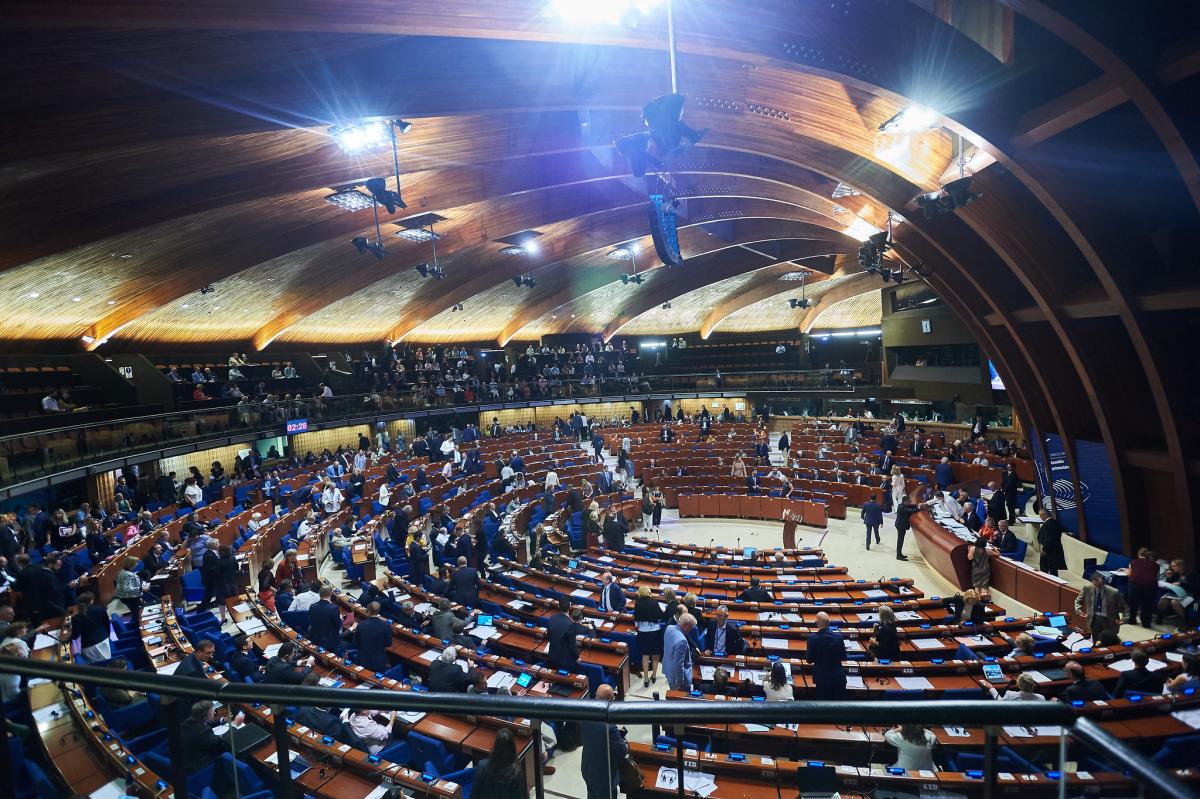
The Parliamentary Assembly of the Council of Europe (PACE) has allowed the delegation of the Russian Federation to return to the Assembly session hall with all reinstated rights without fulfilling any conditions relating to the restoration of the territorial integrity and sovereignty of Ukraine, including the end of the occupation of Crimea and parts of Donbas.
The results of the voting were announced by Liliane Maury Pasquier, the President of the Parliamentary Assembly of the Council of Europe, at a meeting of the summer session, which is taking place in Strasbourg, France, June 24-28. Some 118 members of parliament voted for the decision, 62 voted against, and another 10 more abstained.
Thus, the PACE has decided that its members' "rights to vote, to speak and to be represented in the Assembly and its bodies shall not be suspended or withdrawn in the context of a challenge to or reconsideration of credentials," the PACE said on its website.
Read alsoRussia's return to PACE to weaken Council of Europe – Ukraine's MFA
In a resolution based on a report by Petra de Sutter (Belgium, SOC), the Assembly said this clarification of its Rules was to "ensure that member States' right and obligation to be represented and to participate in both statutory bodies of the Council of Europe is respected."
Citing the "exceptional context" of a recent decision by the Committee of Ministers, the Assembly also decided, in a derogation from its Rules of Procedure, to invite the parliaments of Council of Europe member States "which are not represented by a delegation to the Assembly" to present their credentials at the June 2019 part-session. Normally, credentials can only be presented at the opening of the ordinary session in January.
Thus, the previously imposed sanctions against the delegation of the Russian Federation have been lifted.
Members of the permanent delegation of Ukraine's Verkhovna Rada attempted to push for amendments to the draft resolution, but they did not find support. A total of 220 edits were reviewed, which were overwhelmingly rejected. Separate amendments were withdrawn by their authors. Consideration of the amendments lasted about four hours.
During consideration of the amendments, proposals were made to reschedule the vote for the next day, since the meeting was delayed after midnight, and in fact, it was the next day. However, PACE President Liliane Maury Pasquier insisted on continuing the meeting. In addition, the Ukrainian parliamentarians proposed postponing for six months the implementation of the provisions of this resolution, but this proposal did not find support either.
Also before the vote, there was debate on the draft resolution. Representatives of the Ukrainian delegation noted that since the annexation of Crimea, the Assembly has adopted seven resolutions with specific requirements for Russia to restore the territorial integrity and sovereignty of Ukraine, but Russia had not fulfilled a single requirement. These arguments were not taken into account by the majority of Assembly members.
Finally, the Assembly welcomed the Committee of Ministers' support for its recent proposal to set up a "joint reaction procedure" when a member State violates its statutory obligations or does not respect the basic principles and values upheld by the Council of Europe – and said it was firmly committed to "making this proposal operational as soon as possible."
Under the proposal, such a procedure could be triggered by the Assembly, the Committee of Ministers or the Secretary General, and all three would be involved in a step-by-step process which could ultimately lead to a state's suspension.

